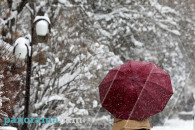
Airborne transmission of coronavirus cannot be ruled out, WHO says
The World Health Organization has acknowledged there is emerging evidence that the coronavirus can be spread by tiny particles suspended in the air, BBC News reports.
The airborne transmission could not be ruled out in crowded, closed or poorly ventilated settings, an official said.
If the evidence is confirmed, it may affect guidelines for indoor spaces.
An open letter from more than 200 scientists had accused the WHO of underestimating the possibility of airborne transmission.
The WHO has so far said that the virus is transmitted through droplets when people cough or sneeze.
"We wanted them to acknowledge the evidence," Jose Jimenez, a chemist at the University of Colorado who signed the paper, told the Reuters news agency.
"This is definitely not an attack on the WHO. It's a scientific debate, but we felt we needed to go public because they were refusing to hear the evidence after many conversations with them," he said.
WHO officials have cautioned the evidence is preliminary and requires further assessment.
Benedetta Allegranzi, the WHO's technical lead for infection prevention and control, said that evidence emerging of airborne transmission of the coronavirus in "crowded, closed, poorly ventilated settings that have been described, cannot be ruled out".
Related news
- WHO urges travellers to keep an eye on 'anywhere and everywhere' COVID-19
- Hundreds of scientists say coronavirus is airborne, ask WHO to revise recommendations
- WHO urges focus on first wave of coronavirus
- WHO warns coronavirus pandemic is 'speeding up'
Newsfeed
Videos






























